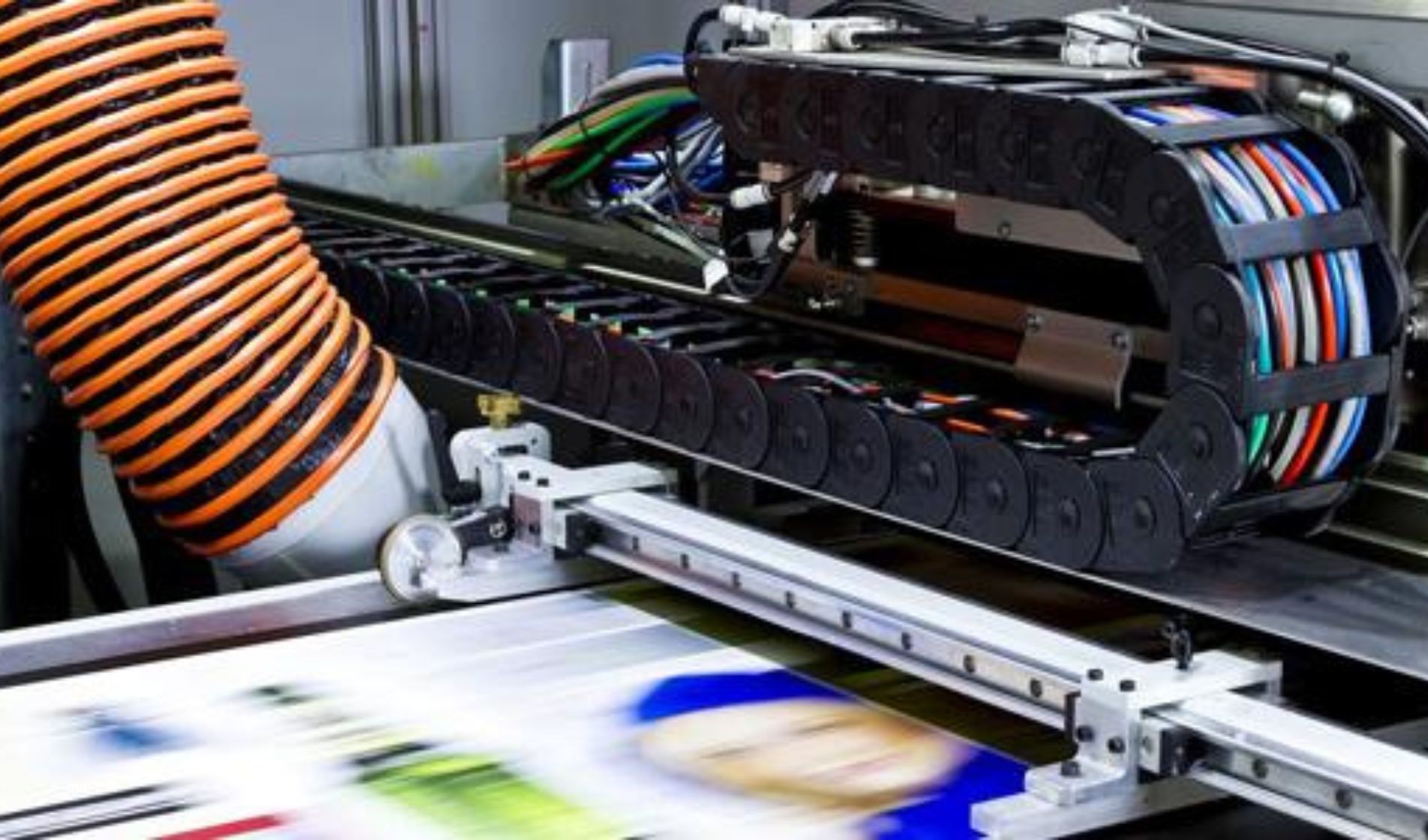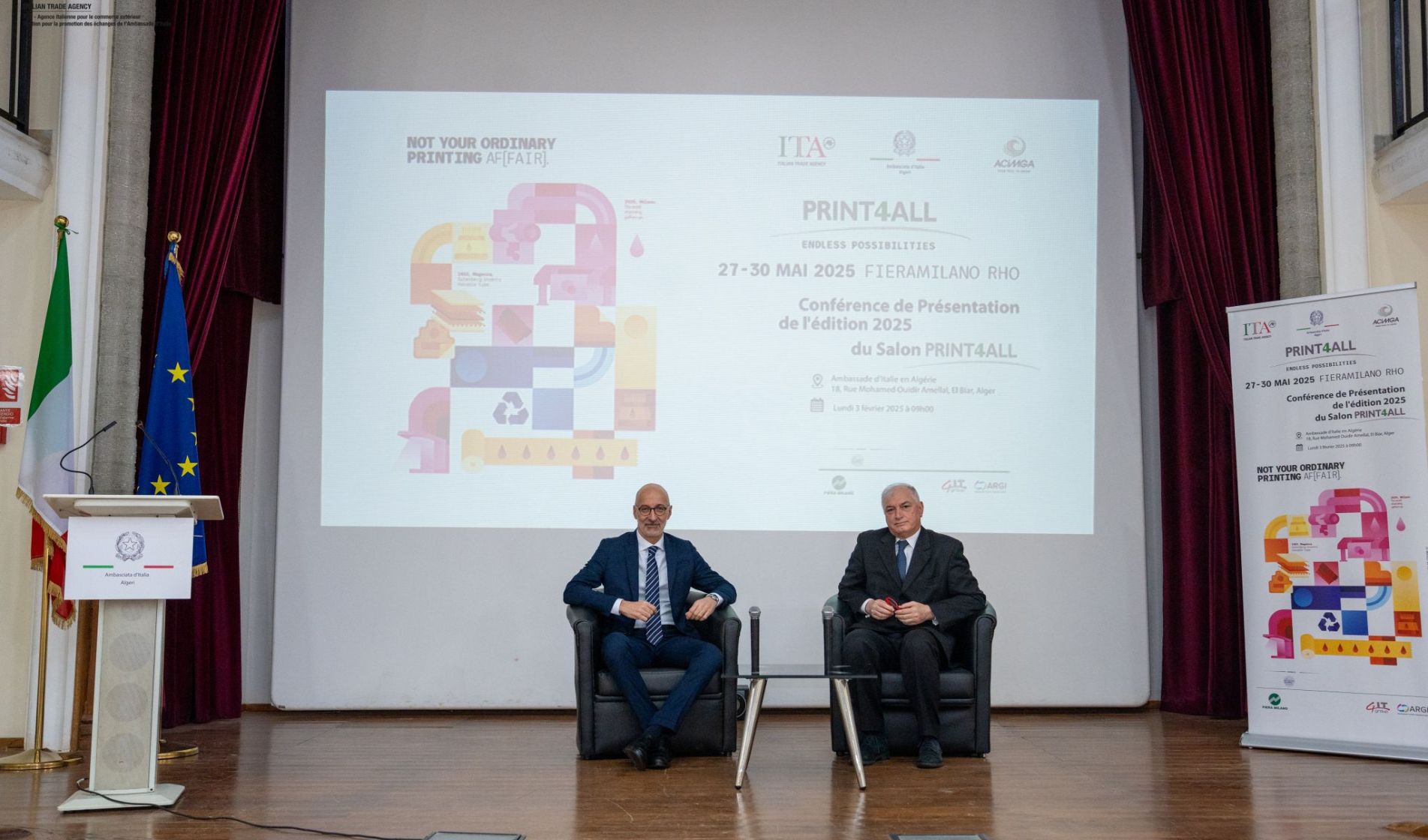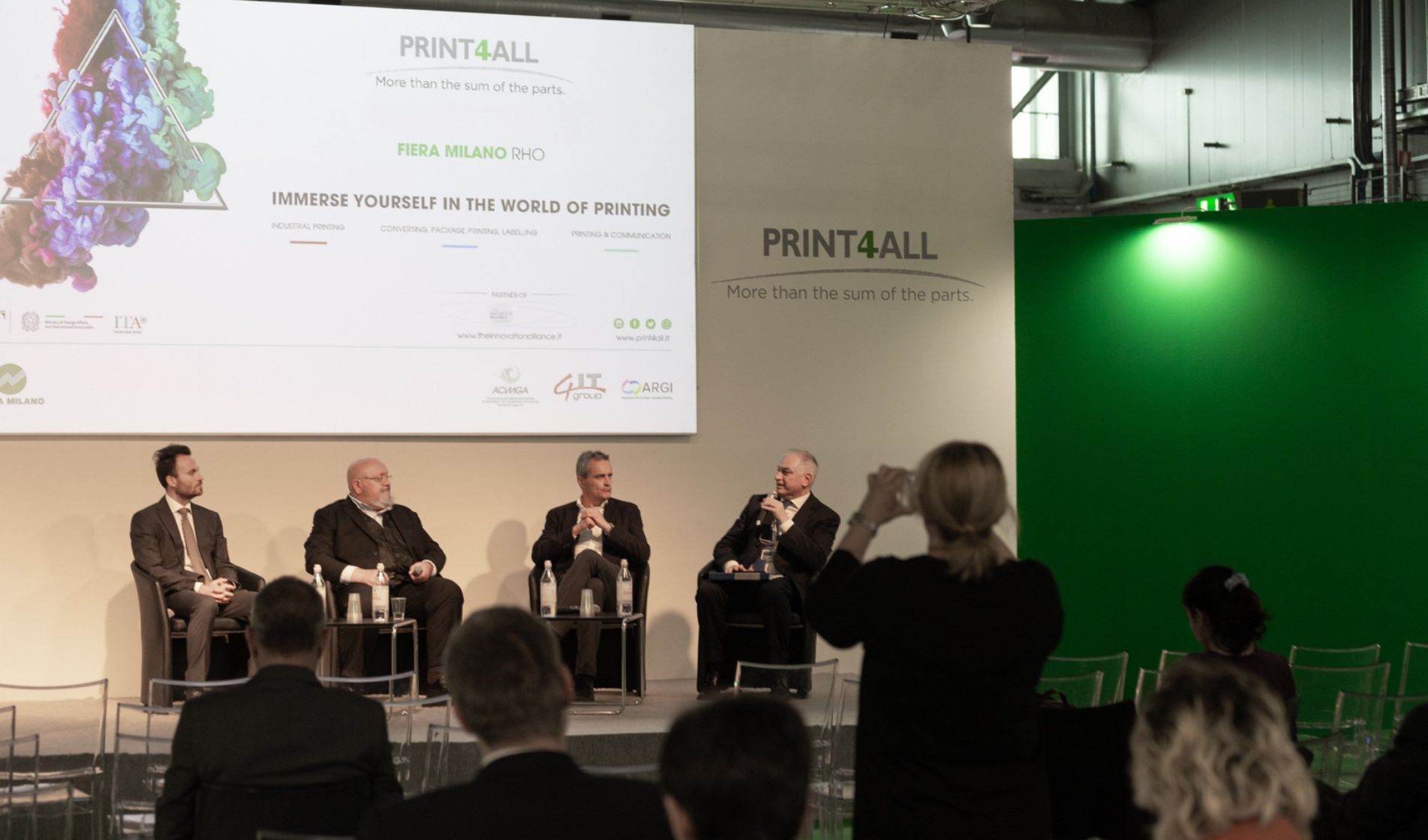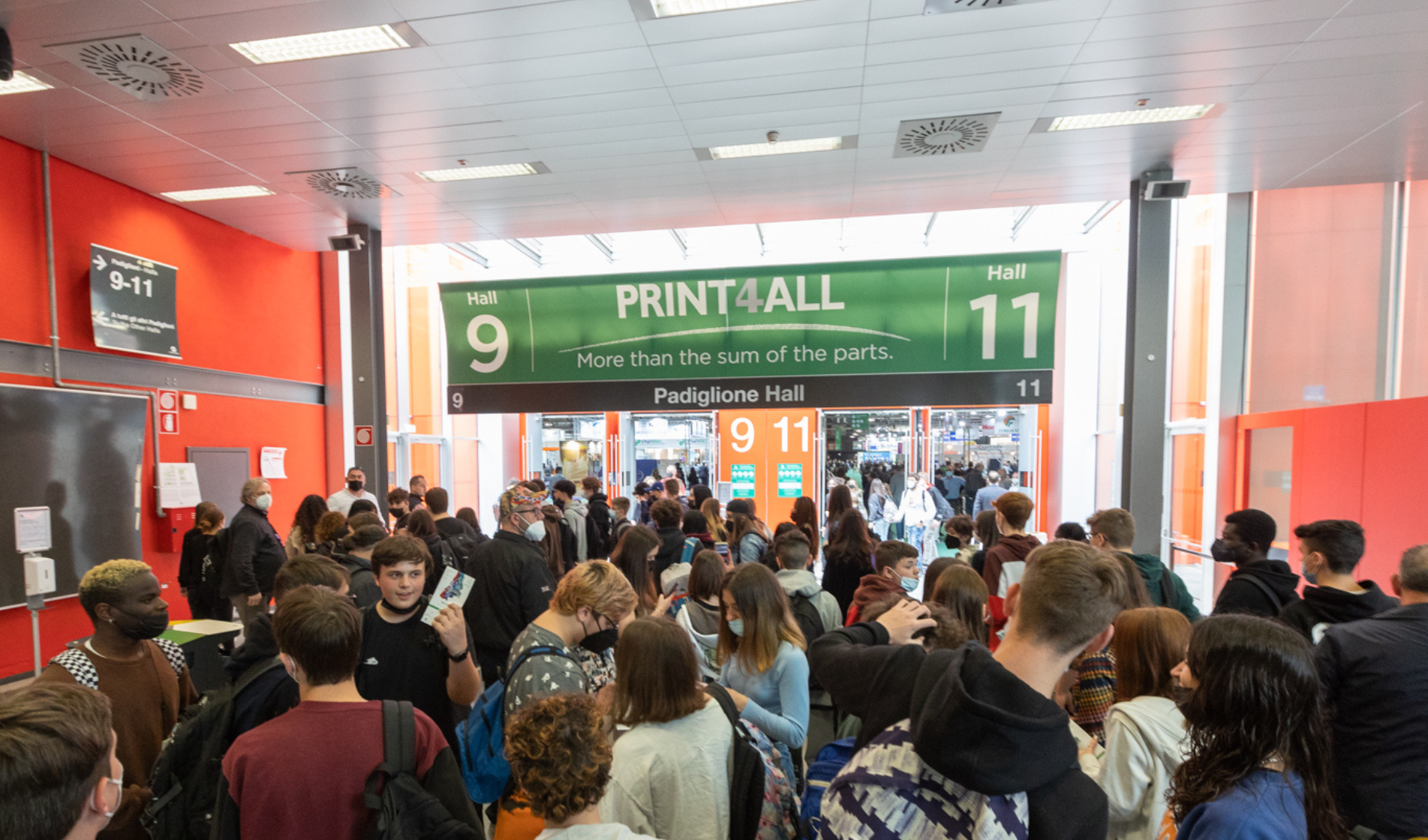Among the most anticipated stars of Print4All will be DTG (direct-to-garment) printing, which, twenty years after its appearance, is proving to be more alive than ever. The development of increasingly high-performance printing solutions and an increasingly diverse portfolio of applications, together with the acceleration of web-to-print, are the factors driving the evolution of this market.
Customisation and on-demand production are two of the main aspects that characterise the Ricoh Ri1000, a novelty that will be presented at the fair and that integrates "smart" technology, speed and high quality results. It is a versatile and flexible fabric printing system that allows companies to expand business and enter new markets. Featuring four-colour and white printing technology, the Ricoh Ri1000 allows you to create patterns in striking colours even on dark garments. Thanks to the large printing area, it is possible to customise many items in a few minutes, such as T-shirts, bags, sweatshirts and polo shirts, either in cotton, cotton blend or light polyester.
Great emphasis on textile sublimation also for Epson that at Print4All will present its solutions for direct printing on clothing, which allow printing images with high productivity and speed on a variety of light and dark cotton garments. On the stand there will be the SC-F9400H printer equipped with yellow and pink fluorescent inks that, thanks to the CMYK ink bags with increased capacity (1.1 litres instead of 1 litre), ensures greater autonomy and therefore very competitive production costs.






.jpg)
